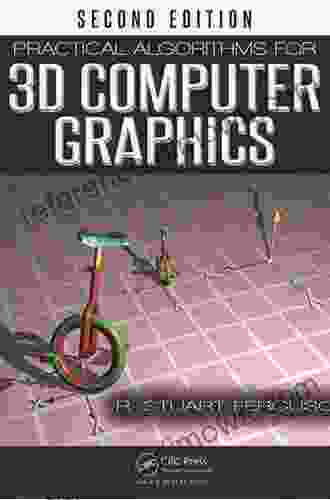Unlock the Power of Nonlinear Pedagogy: Mastering Skill Acquisition through an Innovative Approach

In today's rapidly evolving world, the ability to acquire new skills quickly and efficiently has become paramount. Nonlinear pedagogy, an innovative approach to learning, offers a revolutionary solution to this challenge. By challenging traditional linear teaching methods, nonlinear pedagogy empowers learners to navigate complex knowledge and skill sets with greater flexibility and effectiveness.
4.6 out of 5
| Language | : | English |
| File size | : | 33221 KB |
| Text-to-Speech | : | Enabled |
| Enhanced typesetting | : | Enabled |
| Word Wise | : | Enabled |
| Print length | : | 253 pages |
| Screen Reader | : | Supported |
| Paperback | : | 24 pages |
| Item Weight | : | 3.04 ounces |
| Dimensions | : | 6 x 0.06 x 9 inches |
Embracing Nonlinearity: A Paradigm Shift
Traditional pedagogical approaches often adhere to a rigid linear structure, where students progress through predetermined lessons in a sequential manner. However, nonlinear pedagogy acknowledges that learning is not always a straightforward journey. It embraces the concept of "chunking," breaking down complex skills into smaller, manageable modules.
This modular approach allows learners to focus on specific aspects of a skill, develop mastery in each component, and gradually build upon their knowledge. By eliminating the constraints of a linear path, nonlinear pedagogy empowers learners to adapt their learning journey based on their individual strengths, weaknesses, and learning preferences.
Key Principles of Nonlinear Pedagogy
At the heart of nonlinear pedagogy lie several fundamental principles:
- Modularity: Breaking down complex skills into smaller, manageable chunks.
- Flexibility: Allowing learners to navigate the learning modules in a non-linear fashion.
- Constructivism: Encouraging active participation and knowledge building through hands-on experiences.
- Interactivity: Engaging learners with interactive learning environments and collaborative activities.
- Personalized Learning: Tailoring instruction to individual learners' needs and learning styles.
Benefits of Nonlinear Pedagogy
The adoption of nonlinear pedagogy offers a multitude of benefits for both learners and educators:
- Enhanced Learning Speed and Retention: By focusing on smaller, manageable learning chunks, learners can assimilate and retain information more effectively.
- Increased Flexibility and Adaptability: Nonlinear pedagogy allows learners to adapt their learning journey to their own pace and schedule, accommodating different learning styles and availability.
- Improved Problem-Solving Skills: Breaking down complex skills into smaller modules fosters critical thinking and problem-solving abilities.
- Greater Engagement and Motivation: Interactive and hands-on learning environments keep learners engaged and motivated throughout the learning process.
- Optimized Skill Transfer: The modular approach of nonlinear pedagogy facilitates the transfer of newly acquired skills to real-world scenarios.
Applications of Nonlinear Pedagogy
The versatility of nonlinear pedagogy makes it applicable to a wide range of skill acquisition domains:
- Technology and Software Mastery: Breaking down complex software functionalities into smaller modules enables learners to develop proficiency quickly.
- Musical Instrument Learning: Chunking musical pieces into smaller sections and focusing on specific techniques accelerates skill development.
- Language Acquisition: Dividing language learning into modules for vocabulary, grammar, and conversation enhances fluency.
- Sports and Physical Activities: Breaking down complex sports techniques into smaller movements promotes efficient skill acquisition.
- Job Training and Corporate Skill Development: Modularizing job-specific skills allows employees to quickly upskill and adapt to changing workplace demands.
Nonlinear pedagogy represents a transformative approach to skill acquisition, empowering learners to navigate complex knowledge and skill sets with greater flexibility and effectiveness. By embracing modularity, flexibility, and learner-centered principles, nonlinear pedagogy unlocks the full potential of human learning. Whether you're a student seeking to excel, a professional aiming to upskill, or an educator seeking innovative teaching methodologies, the adoption of nonlinear pedagogy will undoubtedly lead you to new heights of skill mastery.
About the Book: Nonlinear Pedagogy In Skill Acquisition An
For a comprehensive exploration of nonlinear pedagogy and its transformative impact on skill acquisition, dive into the groundbreaking book "Nonlinear Pedagogy In Skill Acquisition An ." This comprehensive guide provides a detailed examination of the principles and applications of nonlinear pedagogy, offering practical strategies and case studies to enhance your learning journey.
With its insightful insights and practical advice, "Nonlinear Pedagogy In Skill Acquisition An " is an essential resource for educators, learners, and anyone seeking to optimize their skill acquisition efforts.
4.6 out of 5
| Language | : | English |
| File size | : | 33221 KB |
| Text-to-Speech | : | Enabled |
| Enhanced typesetting | : | Enabled |
| Word Wise | : | Enabled |
| Print length | : | 253 pages |
| Screen Reader | : | Supported |
| Paperback | : | 24 pages |
| Item Weight | : | 3.04 ounces |
| Dimensions | : | 6 x 0.06 x 9 inches |
Do you want to contribute by writing guest posts on this blog?
Please contact us and send us a resume of previous articles that you have written.
 Book
Book Novel
Novel Page
Page Chapter
Chapter Text
Text Story
Story Genre
Genre Reader
Reader Library
Library Paperback
Paperback E-book
E-book Magazine
Magazine Newspaper
Newspaper Paragraph
Paragraph Sentence
Sentence Bookmark
Bookmark Shelf
Shelf Glossary
Glossary Bibliography
Bibliography Foreword
Foreword Preface
Preface Synopsis
Synopsis Annotation
Annotation Footnote
Footnote Manuscript
Manuscript Scroll
Scroll Codex
Codex Tome
Tome Bestseller
Bestseller Classics
Classics Library card
Library card Narrative
Narrative Biography
Biography Autobiography
Autobiography Memoir
Memoir Reference
Reference Encyclopedia
Encyclopedia Matthew Silverman
Matthew Silverman Elizabeth Suneby
Elizabeth Suneby John Milton Fogg
John Milton Fogg Abound Academy
Abound Academy Juliet Vane
Juliet Vane Andy Dumas
Andy Dumas D L Jackson
D L Jackson Jr Thompson
Jr Thompson Eliot Schrefer
Eliot Schrefer Abhishek Mukherjee
Abhishek Mukherjee Adam Lehrhaupt
Adam Lehrhaupt Sebastian Bond
Sebastian Bond Paul Dowswell
Paul Dowswell Tony Hiss
Tony Hiss Lorenzo Pareschi
Lorenzo PareschiA Z R
 Aa Vv A Cura Di Marina Atzori
Aa Vv A Cura Di Marina Atzori Aaron O Dea
Aaron O Dea Nancy Bo Flood
Nancy Bo Flood Sarah A Chamlin
Sarah A Chamlin
Light bulbAdvertise smarter! Our strategic ad space ensures maximum exposure. Reserve your spot today!

 Nathaniel PowellConversational French Quick and Easy: Unlock the Secrets of Fluent French...
Nathaniel PowellConversational French Quick and Easy: Unlock the Secrets of Fluent French... Philip BellFollow ·18.5k
Philip BellFollow ·18.5k Everett BellFollow ·12.2k
Everett BellFollow ·12.2k Forrest BlairFollow ·17.4k
Forrest BlairFollow ·17.4k Eliot FosterFollow ·13.1k
Eliot FosterFollow ·13.1k Jeff FosterFollow ·16.1k
Jeff FosterFollow ·16.1k Louis HayesFollow ·10k
Louis HayesFollow ·10k Ismael HayesFollow ·5k
Ismael HayesFollow ·5k Cameron ReedFollow ·6.5k
Cameron ReedFollow ·6.5k

 Julio Cortázar
Julio CortázarShift Your Perspective, Seize Your Potential, Own Your...
A Transformative Guide to...

 Isaias Blair
Isaias BlairPractical Algorithms For 3d Computer Graphics: Unlocking...
In the realm of digital artistry, 3D computer...

 Joseph Heller
Joseph HellerClear Vision Through Cloudy Eyes: A Guide to Overcoming...
Have you ever felt...

 Leo Tolstoy
Leo TolstoyThe True Story of My Fairygodparent Who Almost Killed Me...
Book Description In this captivating...

 Earl Williams
Earl WilliamsCanada 10 Must Visit Locations: A Captivating Journey...
Prologue: A...
4.6 out of 5
| Language | : | English |
| File size | : | 33221 KB |
| Text-to-Speech | : | Enabled |
| Enhanced typesetting | : | Enabled |
| Word Wise | : | Enabled |
| Print length | : | 253 pages |
| Screen Reader | : | Supported |
| Paperback | : | 24 pages |
| Item Weight | : | 3.04 ounces |
| Dimensions | : | 6 x 0.06 x 9 inches |










